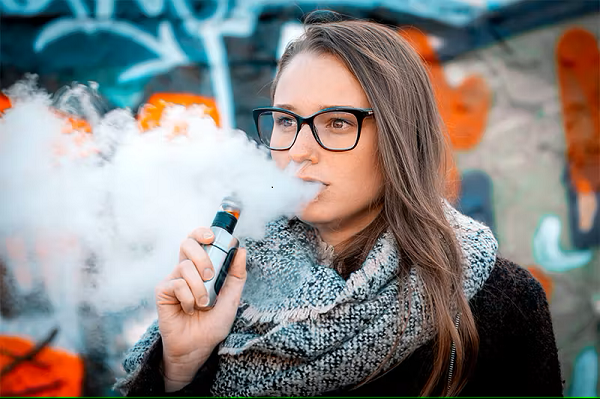| Section | Link to Section |
|---|---|
| Reynolds | Reynolds Desires To Isolate Rivals Of Vuse Along The Border. |
| Vaporizers | Reynolds' Valiant Battle Against Throwaway Vaporizers |
The largest tobacco company in the country, R.J. Reynolds, has filed a complaint with the U.S. International Trade Commission (ITC), accusing many producers, distributors, and retailers of unfair importation of the most widely used disposable vapes. The move comes after prior attempts this year by Reynolds to stop the proliferation of disposable vapes that pose a threat to its Vuse line of goods.
Regarding the complaint, the ITC has not yet taken any action. A copy of the paperwork, which was filed on October 13, has been obtained by Vaping.
Reynolds is requesting that the ITC look into the matter, issue an exclusion order that would stop more of the disputed disposable vaping products from being imported into the United States, and issue a permanent cease-and-desist order that would forbid the named companies and their "affiliated companies or divisions" from importing, selling, or distributing any of the "accused products."
A Reynolds representative Many of the manufacturers of these disposable vapor devices intentionally and systematically market to youth, selling products with dessert and candy flavors and featuring cartoon characters." "By flouting the laws governing the sale of tobacco products, these illicit disposable vapor devices are endangering public health because they lack ingredient transparency and circumvent regulatory oversight." The representative used the following examples of "marketing to youth": "vapes disguised as highlighters, featuring cartoon characters, or youth appealing flavors like unicorn, bubblegum, and rainbow candy."
If Reynolds is successful in the ITC, the market for popular flavored vaping products may completely change from a gray market (i.e., goods sold in authorized retail establishments with taxes paid) to an underground black market (completely illegal and unreported).
Reynolds Desires To Isolate Rivals Of Vuse Along The Border.
The companies listed in the lawsuit are producers, importers, distributors, and retailers of Breeze, Elf Bar, Esco Bar, Hyde, Puff Bar, and R&M disposable vapes. Reynolds refers to these companies as "peddlers of illegal disposable vapes."
Several well-known American wholesale and retail sellers of disposable vaporizers, such as Element Vape, Flawless Vape, Magellan Technology, Mi-One Brands, Price Point Distributors, and Vape Sourcing, are among the businesses mentioned in the complaint.
The respondents are accused of violating Section 337 of the Tariff Act of 1930 by importing "illegal disposable vapes," according to the ITC complaint. Reynolds specifically alleges that the aforementioned companies either broke customs laws and regulations, misrepresented in their advertisements that their goods were approved for sale by the government, or disregarded federal laws placing restrictions on sales and registration requirements. The Prevent All Cigarette Trafficking (PACT) Act was revised in 2020 to cover vaping items, and some of the respondents are accused of breaking this law.
The owner of the mass-market vape firm Vuse, R.J. Reynolds, is the man behind the Vuse Alto, the vape that is most popular at convenience stores. The FDA ordered the removal of Alto menthol refill pods from the market last week through a marketing denial order (MDO). The government is still reviewing the tobacco-flavored capsules and the Alto device. Among the six vape devices that are now being sold that have FDA approval are two earlier Vuse models, the Solo and Vibe (as well as their tobacco-flavored refills).
Reynolds argues in its complaint that if the agency decides to outlaw the competition, it and its Big Tobacco comrades are willing to step in and take over. The ITC complaint states that Reynolds "has the capacity to replace any increase in demand if the Accused Products were excluded from importation." "Since Reynolds already supplies the industry with substantial amounts of ENDS products, as well as oral tobacco and nicotine products, it is willing to meet any increased demand and can do so in a commercially reasonable time."
Reynolds' Valiant Battle Against Throwaway Vaporizers
This is the most recent move in Reynolds' drive to crush the growing competition from disposable vapes in the market for vaping products that is found in convenience stores and petrol stations. This year, Reynolds and its parent firm British American Tobacco (BAT) have both taken drastic measures in an effort to destabilize the emerging vape competitors:
- Reynolds requested that the FDA amend its enforcement advice to specifically target disposables in a formal citizen petition that was submitted in February.
- In its FDA petition, the business implied that disposable vape pens might be “laced with fentanyl.”
- In an attempt to spur enforcement measures, BAT tested the volume of Elf Bars and gave the information to UK Trading Standards teams after disposable maker IMiracle turned down its bid to purchase its Elf Bar brand last year. A letter alerting shops to “the risks of corporate and personal liability arising from the sale of non-compliant products” was subsequently delivered by BAT.
- A U.S. House bill that would push the FDA to revise its vaping product enforcement advice and clarify "how the agency will prioritize enforcement against disposable ENDS products" was presented not long after the FDA petition was filed. The legislation's traditional backer, tobacco control groups, claim that R.J. Reynolds was the driving force behind it.
- Advocacy-for-hire group Consumer Action for a Strong Economy (CASE) started an odd campaign against disposable vapes about the same time Reynolds filed its citizen petition. In addition to promoting the dangers of disposables on its website and applauding the FDA for its enforcement efforts, CASE also drove a truck around Washington, D.C., holding large posters that opposed disposables. Reynolds is thought to be the driving force behind the CASE effort.
- Reynolds has threatened to sue and file lawsuits against vape shops and other retailers if they sell unapproved vapes. Reynolds has sent these letters.
The majority of R.J. Reynolds's and British American Tobacco's earnings still come from the selling of combustible cigarettes.






